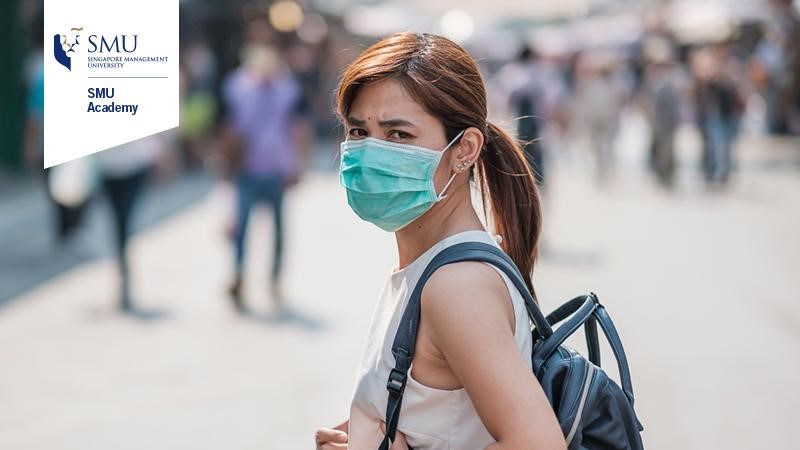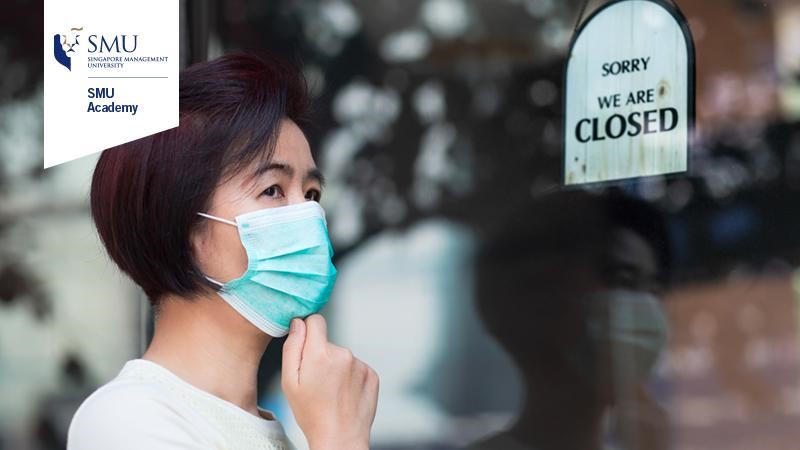
Most of us can’t wait to hit the road or hop a plane and head out on holiday, just like we used to this time, last year. But accommodations, attractions, airlines and all those in the tourism industry will have to wait a long while before guests begin to book their stays and bring their families and much-needed revenue along with them.
Never in Singapore’s history has the local tourism industry faced a challenge of this magnitude—after initially projecting a decline of 25 to 30% in visitor arrivals, industry experts now anticipate a continuing downtrend.
The recovery of Singapore’s tourism industry is seen as resembling the breaking dawn, rather than a flash of lightning. It won’t be like flipping a switch that gives everyone the go-signal to pack their bags and make a bee-line for the bus or the airport.
But like the rising sun, the country can count on this recovery taking place, and look forward to many positive, long-term outcomes.
The Government's Got You Covered
Travel industry observer, Skift, has singled out our local tourism industry as one for the world to watch when it comes to laying the foundations for rebuilding.
Led by CEO Keith Tan, the Singapore Tourism Board (STB) has moved quickly and efficiently in rolling out measures to help tide stricken tourism and hospitality businesses over, and to plan for a gradual but steady comeback. These measures, as described by the CEO himself and the Straits Times, include:
● Tourism Recovery Action Task Force (TRAC), which encourages members of the industry to work together instead of competing against each other
● Support and Stabilisation Package allocation of SGD300 million for the tourism sector
● The Marketing Partnership Programme which grants a total of SGD20 million in marketing aid for tourism businesses to cover up to 70% of marketing expenditure
● The SG Stories Content Fund which dispenses SGD2 million to help content creators to produce captivating Singapore stories by covering 90% of video production costs
● A 90% reduction of the minimum financial requirement for travel agents to keep their licence
TRAC taps industry leaders such as those from the National Association of Travel Agents Singapore, the Singapore Hotel Association, and the Singapore Association of Convention and Exhibition Organisers and Suppliers, as the event management industry has been equally affected.
Among the digital solutions which have been at the forefront of the nation’s response to the pandemic, the STB has leveraged its Singapore Tourism Analytics Network (STAN). The network plays a key role in determining the virus’ impact on the industry and providing data to help tourism companies make data-driven decisions and formulate strategies for the eventual resurgence of travel to the country.
Other tourism-oriented digital solutions from STB include an on-site innovation hub dubbed "ThreeHouse" which gives businesses a testing ground for new services, and the Tourism Transformation Index which helps businesses keep track of industry developments. The STB Marketing College is also helping tourism workers to enhance their skills during this time.
The STB is also working with other Government agencies such as the National Parks Board, and the Urban Redevelopment and Land Transport Authorities, as well as the Changi Airport Group. The Board is likewise continuing its ongoing efforts to improve Orchard Road, Marina Bay Sands, Resorts World Sentosa, Jurong Lake District and the Mandai nature precinct, and working on strengthening the Singapore brand globally to retain brand recall.
Government efforts to support tourism businesses also include wage subsidies, digital transformation training tools, and partnerships with Facebook, LinkedIn and Google for providing online learning initiatives. And with some 164,000 tourism jobs affected by the pandemic, SkillsFuture has also ramped up its training support for tourism businesses that enable their workers to participate in relevant programmes.
The Private Sector Steps Up

Businesses themselves are stepping up and doing what they can to prepare not just their respective enterprises but the industry as a whole for a reinvigoration of local tourism for the short-term, and international tourism down the road.
Maintaining open communication with the public regarding safety protocols has always been paramount. Businesses have adjusted their marketing messages and strategies to educate rather than to encourage travel, and have redoubled their efforts to engage with their audiences using digital platforms to assure them of their continued support.
Apart from upskilling in digital capabilities, many tourism businesses are also using this time to train staff in advanced, reduced-contact service, and making sure staff members have adequate personal protection equipment.
Businesses are likewise putting enhanced sanitation and disinfection procedures in place and making brick-and-mortar modifications to facilitate social distancing and to lessen high-frequency touch points.
Though many of these modifications are meant to be temporary, many of the measures taken by both the Government and private businesses are projected to be permanent features of the “new normal” for the tourism industry.
With a number of tourism attractions as well as hotels and travel agencies having been permitted to open with the beginning of Phase 2, the entire industry remains vigilant as well as adaptable on its way to a full recovery.
To help your own tourism business to rise to the challenge of effecting its own transformation during the current situation, SMU Academy offers the Executive Certificate in Leading Tourism Transformation.
This programme gives you a deeper understanding of how the industry continues to evolve so that you can develop your own strategies for implementing the transformation initiatives your organisation needs to not just survive but thrive during tourism’s recovery period.
Under the guidance of industry practitioners, you’ll learn to identify unique, quick-win opportunities presented by today’s mega-trends and technology. You’ll be learning how to apply design thinking to these opportunities, which will enable you to create new service offerings for your customers or come up with innovative processes for your business.
You’ll also learn to employ AI, AR and other digital solutions to boost business efficiency, and to use data and analytics to help you make informed business decisions. Find out how you can use SkillsFuture subsidies to get started on making even greater contributions to the rebirth of Singapore’s tourism industry, today.
